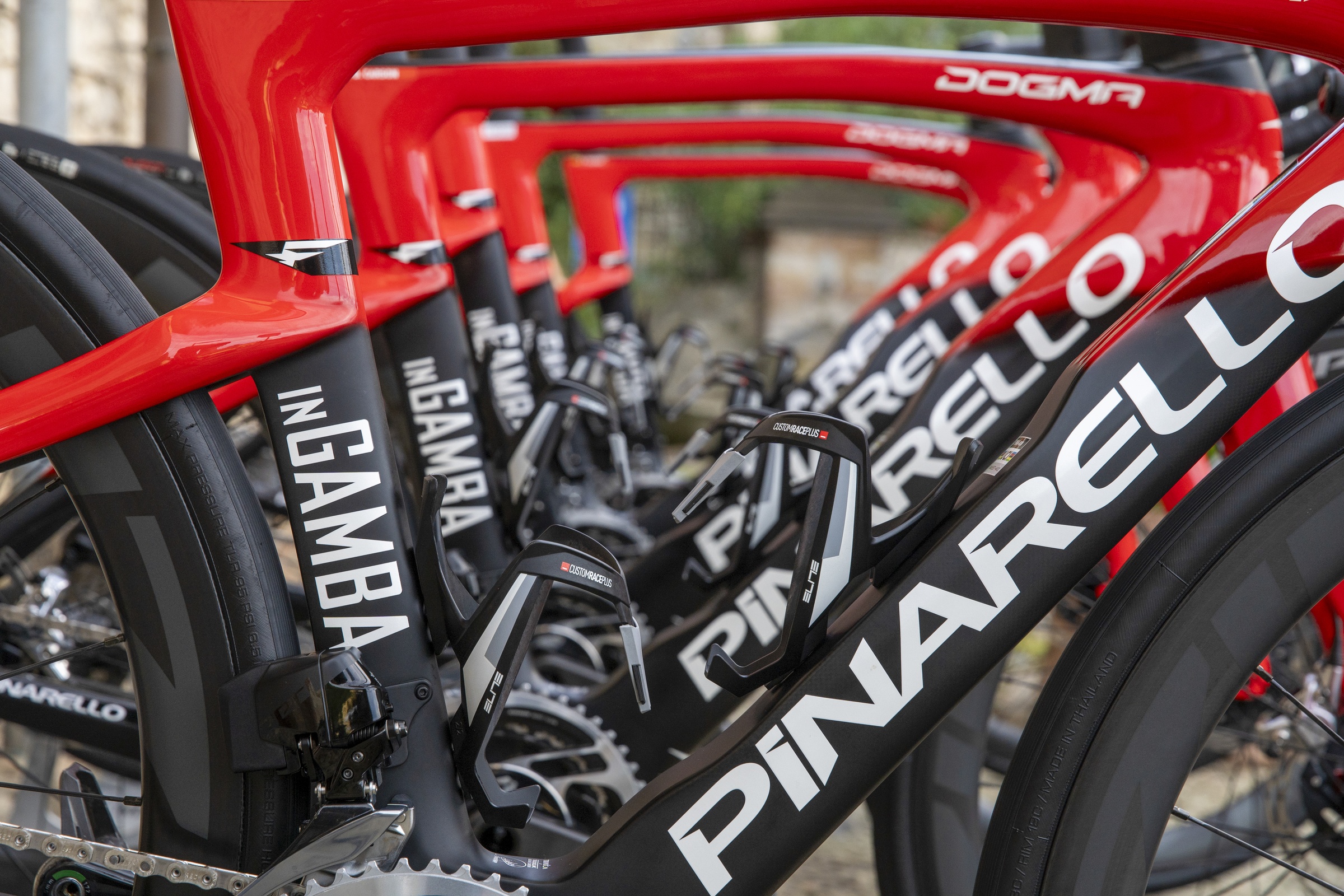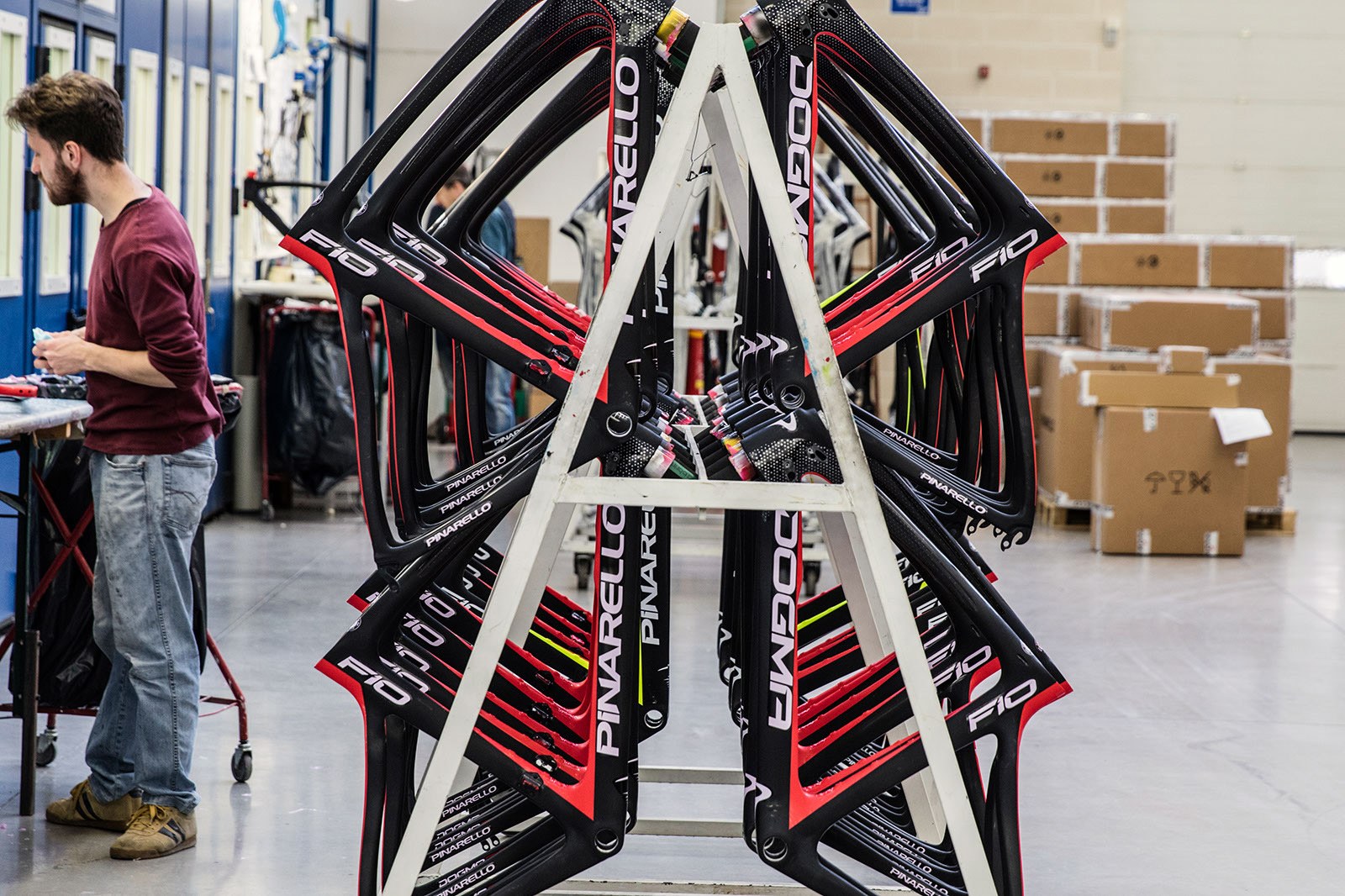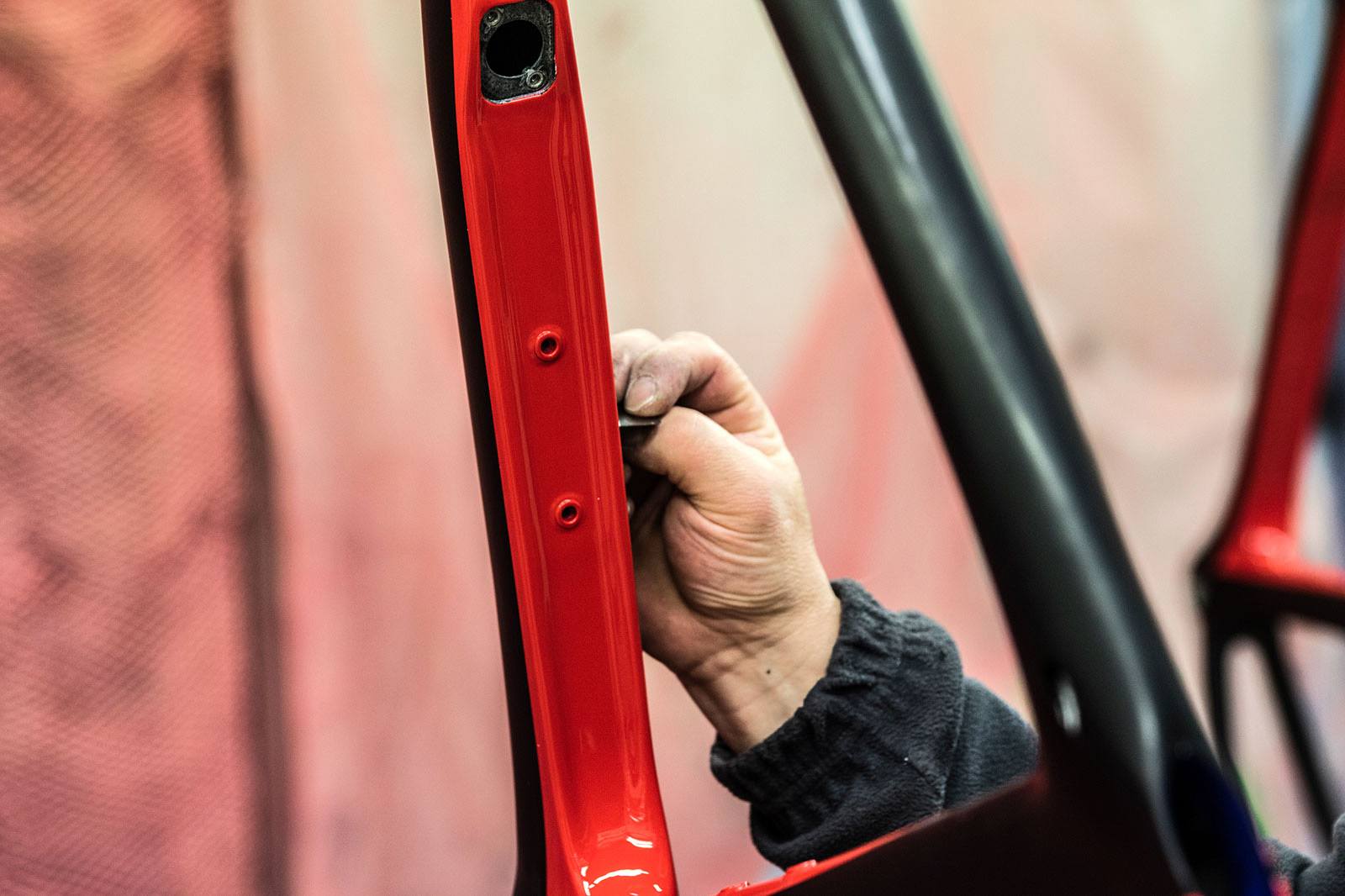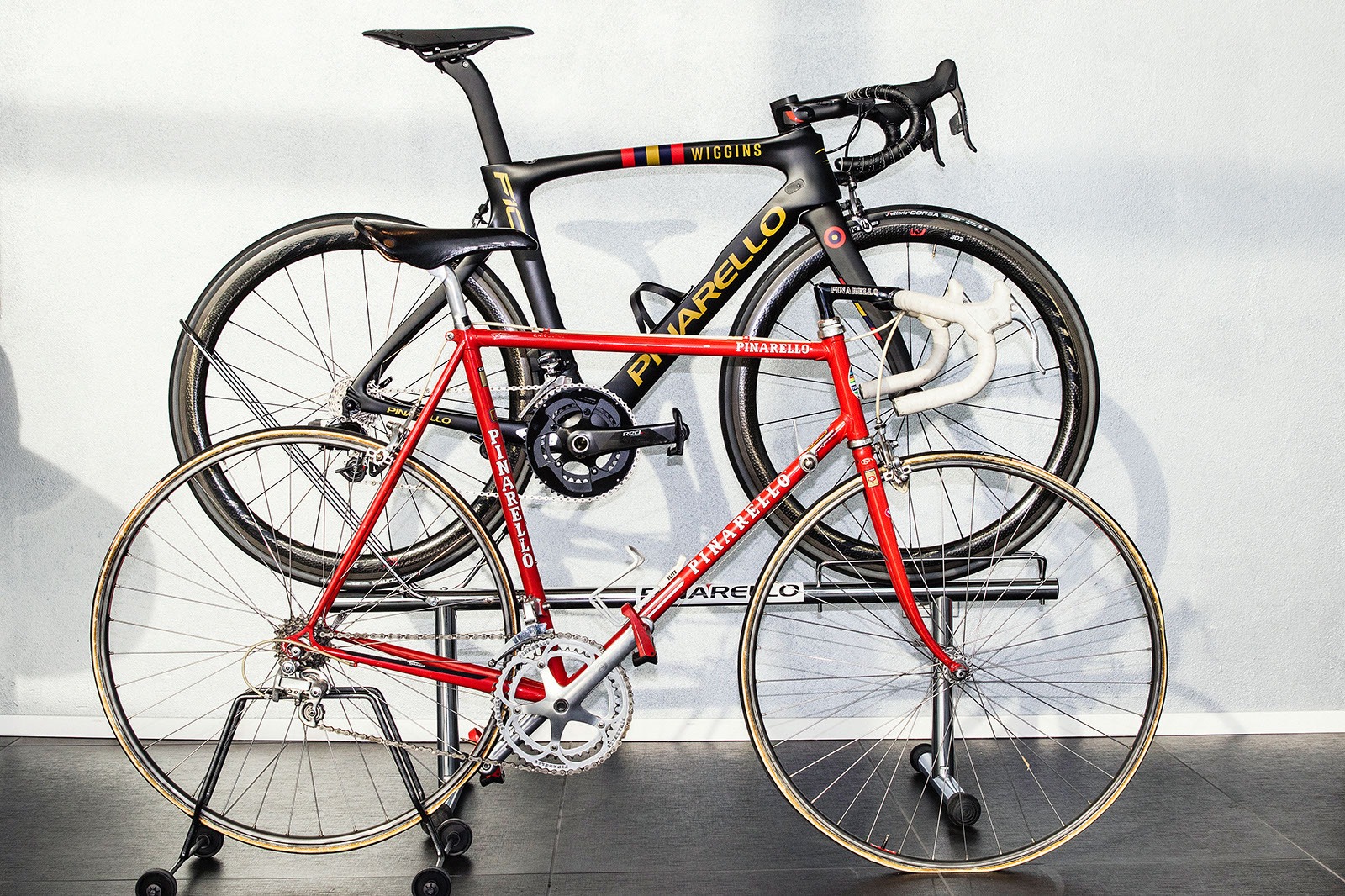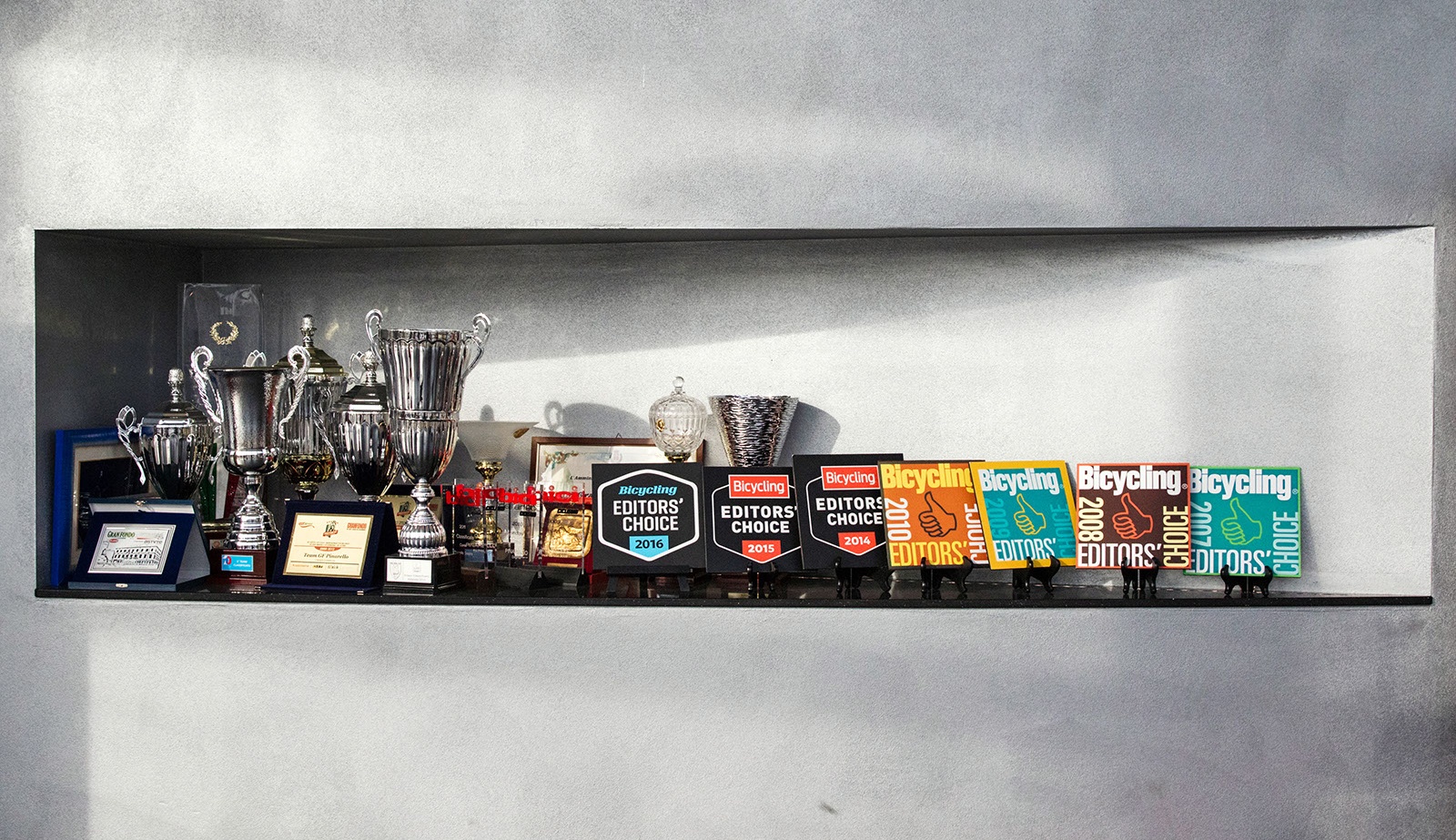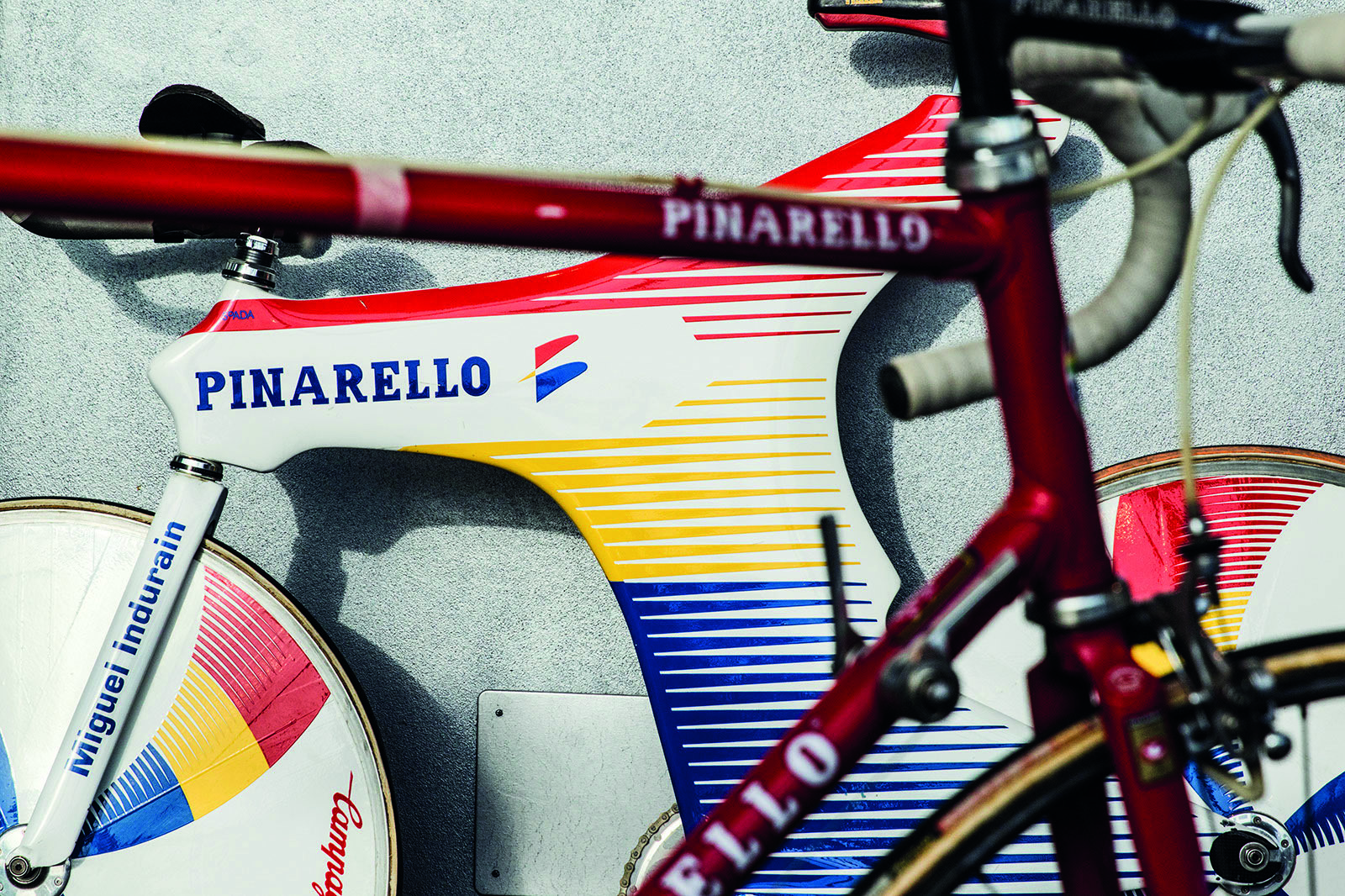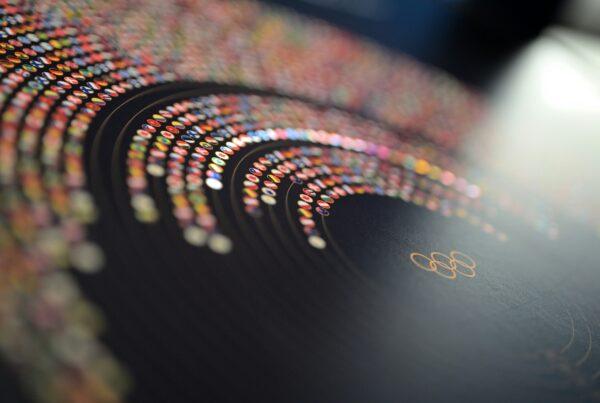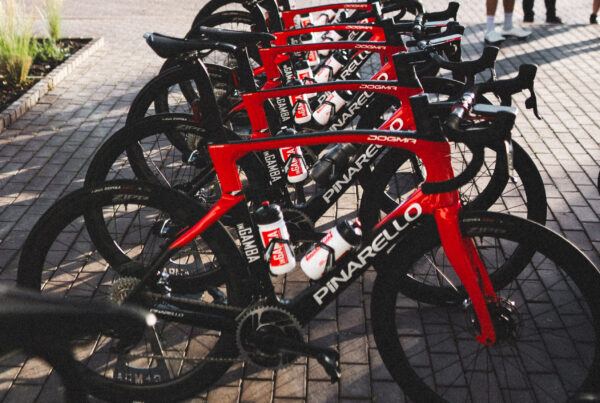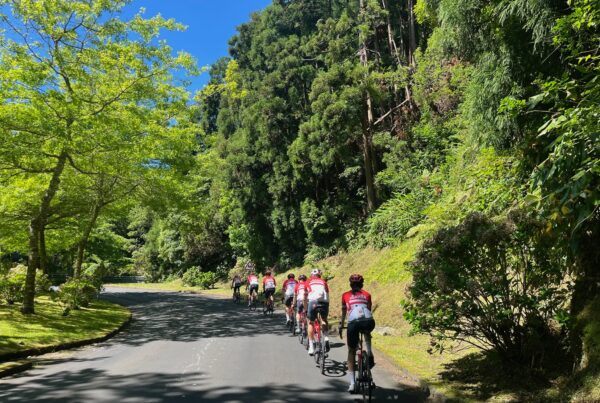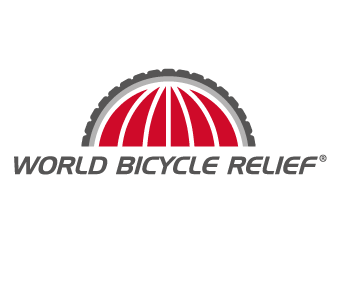When Giovanni Pinarello opened a small shop in the 1950s, he could never have dreamt that more than 60 years later, his name would be proudly emblazoned on the world’s best bikes. It’s a success story that his son Fausto is very proud of – and one that he’s intent on continuing.
Fausto Bertoglio won the 1975 Giro d’Italia, and it was like a bolt out of the blue. Even as Eddy Merckx withdrew just before the opening stage due to illness, there were still Italy’s last champion Felice Gimondi, the great Roger de Vlaeminck, Spain’s precocious Francisco Galdós and a host of other talents to contend with. In his third year as a professional, Bertoglio wasn’t even the biggest name in his Jolli Ceramica team, and a relative unknown compared to the pre-race favorites. But when his captain, Giovanni Battaglin, failed to take control of the general classification and then inexplicably capitulated just as it looked like the Maglia Rosa might be his, Bertoglio put in the performance of a lifetime, and secured one of cycling’s great prizes on a dramatic final day that finished on top of the Stelvio, perhaps cycling’s most dramatic mountain.
It was to be the apex of his career, but for someone else, it was just the first taste of much future glory. Giovanni Pinarello had ridden as a pro after World War II, but without huge success. As a rider, he was best known for winning the cash prize for being the last rider in the 1951 edition of the Giro, for which he was awarded the Maglia Nera. Shrewdly, he used that money to open a bike shop, and so one of cycling’s great brand names was born. Bertoglio’s Giro victory was the first time a rider on a Pinarello bicycle had made it to the top of a podium in one of cycling’s Grand Tours, but it wouldn’t be the last, and success came quick and fast in the following years, with iconic teams like Inoxpran, Banesto, Del Tongo, and Telekom.
Four decades on from that debut Giro win, and Giovanni is sadly no longer with us. One of cycling’s most iconic figures, he lived to be 92 and could be seen on a bike well into his 80s. In his lifetime he saw his business grow from a small shop in his native Treviso to the most lusted after name in modern cycling, with a slew of major titles and an abundance of Grand Tour stage wins. It’s a legacy that his son, now at the helm, is proud of. Fausto Pinarello, is now in his 50s, well-dressed and looking every bit as fit as you’d expect from a man who rides as much as possible. He started working at the family business in the factory’s paint shop, spraying frames, and has seen the brand grow exponentially from a relatively small enterprise to the brand that has won four of the last five Tours de France.
“It was 1979, when I realised school wasn’t for me,” says Fausto, in his office at the company’s headquarters, a stylishly understated room, filled with memorabilia from a lifetime in cycling. He is jovial and relaxed in a manner that seems typical of his personality and leadership style, sitting at a round table more suited to collaboration and relaxed conversation than barking out orders.
“I was 17 when I started working, really working. I’d always helped in the shop, from when I was eight or nine, during the summer when my dad used to get me to make the little holes in the mudguards on the ladies bikes, for the net that stopped dresses getting caught in the spokes. I used to add the valves to the inner tubes, too, because back then they weren’t vulcanized like they are today.
“My first day at work, I didn’t have a clue what I wanted to do as an adult. At that age, you never do. It probably took me six or seven years to really understand. Or maybe a little sooner, when I’d see the bikes on TV, winning, and at the races, when the riders would come to say hi. That made me understand that this was a wonderful product.
“You can make other things, screws or chairs, but it doesn’t give you the same kind of pride as a bicycle does. It’s a beautiful object. And if you can win – even better. It’s not that we just make bikes to win, that’s not the first thing we think of. First, we have to make them well, and then, if we win, great. But my message is always this: We’re trying to get as many people on the bike as possible.
“I’d like to think that we’re making something that’s more than a means of transport, it’s a means to be happy and healthy, that everyone can enjoy, and a product that promotes wellness and is very social. Sooner or later you have to give up football or marathon running, but not cycling. Of course, you could go play golf, but I think cycling is better!
“The bike is a toy. Most of the people riding Pinarellos are like me; they’re not 20 years old anymore, not pros, they work, have families. They don’t want to be like the pros, they want to unwind, maybe have a little battle with a friend, and then return home, contented, after a few hours out on the bike, not thinking of anything else.”
Even if it isn’t the first thing that they think of when designing a new frame, winning is part of Pinarello’s DNA, and as their partnership with Team Sky continues, that doesn’t look like it’s changing any time soon.
“The first victory that I really remember since I started here, was Giovanni Battaglin in the 1981 Giro,” recalls Fausto.
“I remember that famous stage, on the Tre Cime di Lavaredo, when he took the GC lead with a great performance. We always tried to make light bikes, but back then the races were really hard. These days, we have compact cranksets, 11 speeds in the rear, but back then, it was another thing. Here in the factory, our old mechanic made Battaglin a triple crankset, from Campagnolo, but totally by hand. Just for him. I think he got the chainrings from cyclocross.
“Of course, at my age then, 19, you don’t really understand. When I think back, it always brings to mind a young footballer like Mario Balotelli, who OK, behaves a bit silly sometimes, but then everyone attacks him? Come on, what do you expect from a kid? Unless you’re Bill Gates or something. Maybe for geniuses it’s different, but I was never a genius. With time, I grew to understand and love the work.
“Maybe being at the top is a problem. A good one, but still. It’s like being an athlete. It takes a lot to arrive at the top, but even more to stay there. You need a good team around you, working towards the same objective, from the boss, to the guys painting the frames, to the professionals you sponsor, to the customers. Everyone has to be going in the same direction. And everyone needs a bit of luck.
“We’ve always been close to our athletes, because it’s a passion. We’ve always spent too much on our sporting objectives, but for me it’s a pleasure. Maybe that passion is different, for an Italian, compared to an American, a German or someone from Taiwan. It’s always been here, especially for road racing. That passion means I want to be close with the athletes, and give them the best possible.
“It’s not always about money, it’s about doing the best that you can. If I give a bike to a professional, and he’s not happy, there’s something seriously wrong there. We’ve been doing the same thing since the days of Miguel Indurain, and now we’re doing it with Sky, producing a frame for the athletes, but also with the athletes.
“I’ll give you an example. When Lance Armstrong started racing, he was using a saddle from San Marco, but it was a Concor, a model from 20 years previous, that had been re-covered. That’s my friend’s company, and they sponsored the team. I said to him, ‘What the hell are you paying for, if he’s using something that’s 20 years old!’
“That’s no good. But if you make something with the athlete, and you have a good relationship, not just on a professional level but also personally, it’s a lot easier. It’s not that you have to be best friends, always eating together or whatever, but what’s good for the athlete is good for my work, too.
“Passion means that it’s more than work, you’re always trying to do more than is necessarily needed. We made the bike just for Bradley Wiggins’ Hour Record, but we’ve been doing that since Miguel Indurain. Miguel had five [of his iconic Espada frames], three for the track, and two for the road. We never made one for anyone else.
“It’s not something that you could do for everyone – or even something that they’d want. Because if you give someone a custom bike, just for them, there’s pressure, they have to perform no matter what. We’re lucky. If you have an athlete like Miguel, or like Wiggins or Chris Froome, it’s worth the effort, and they make it easy to create a special product.”
Those special products feed into their production bikes, the kind ridden by a lucky few, and lusted after by many more. In recent years the Dogma has been a byword for race-winning performance, and credit is due to Pinarello for not being afraid to change a winning formula in search of new marginal gains.
“It’s a problem, but you need to evolve,” he says, talking about moving on from their last model, the F8, that is still arguably one of the best bikes on the planet. Early feedback suggests that the F10 will bring home even more silverware, and with it, bike sales, but it can’t have been an easy decision to move on from a design that was still thriving in both the marketplace and the peloton.
“Take this phone,” suggests Fausto, holding up a cordless handset for the office landline. “If you wanted to jump from this to an iPhone, it’s impossible. But from an iPhone 4, to go to 5, the 6, the 7, it’s easier. We’re beginning with a product that already works well, so we just have to improve on it. And it’s not like we can just invent the numbers, it’s all from computers, so you work from the data and then in a couple of years, you see how it actually performed. It’s always changing, but starting from a good base is vital.
“Looking back now, I think it’s better that we grew slowly. I don’t want to say that we had nothing 40 years ago, but the company wasn’t like this. We’ve developed bit by bit. And I’m not sure if that would still be possible today, to grow gradually, and to mature with the company like I have. I don’t think so.”
